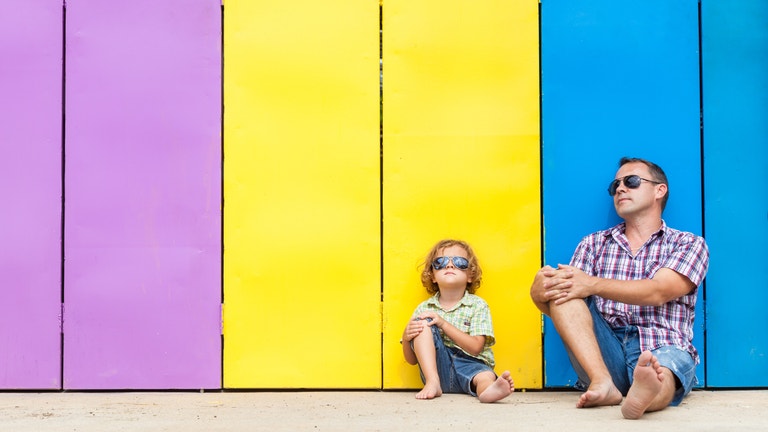
How You Parent Probably Doesn't Matter As Much As You Think
by Meghan Moravcik WalbertAs someone who writes about parenting a lot and with the exact goal of helping to make all aspects of this monstrous, daunting task a little easier, I did a little double-take when I saw this headline in Today’s Parent: Does Parenting Even Matter? It better matter! Otherwise, why am I sitting here writing about potty training and when to accommodate a picky eater and how to deal with a toddler’s fear of automatic toilets? These things matter.
But then I read the whole article, which I also suggest you do, and I feel better. Actually, I feel really damn good—because the gist of it is that the parts about parenting that we enjoy—loving our kids, supporting our kids, bonding with our kids—does matter. All the other stuff, though—how strict we are or whether they have a chore chart or if we signed them up for toddler yoga—has much less to do with how they’ll turn out.
It’s the old nature vs. nurture debate. How much of who we are is determined by our genetic makeup and how much is a direct result of the environment we grow up in?
A professor at King’s College, London, Plomin is one of the world’s leading experts on the study of identical twins, and his book Blueprint explores how DNA forms human character. At a recent public debate in London, he was unequivocal: “Parenting matters,” he said, “but not in terms of determining a child’s psychological outcome.”
What Plomin means is that while it’s hugely important that we love and care for our kids, other things matter far less. According to Plomin, new data shows things like which school your child goes to, whether they travel, how many books you read them when they’re small and how hard (or if) you push them into certain activities, aren’t likely to have much, if any, effect on who they fundamentally are now, or who they become. Put another way: If your child is defiant and strong-willed, they’re almost certainly going to spend their life challenging authority whether you run your household on a strict military timetable or unschool them in a yurt.
I’m choosing to see this as a good thing, but it is a bit of double-edged sword. It means that if we mess up a little, if we get a little too helicoptery or we never really manage to implement a solid bedtime routine, it doesn’t really matter in any long-term, fundamental way. Consistently letting them stay up 20 minutes too late is nothing compared to making them feel safe and loved.
On the other hand, the reverse is true. We might nag them every day about the importance of doing their homework on time, but hey, a procrastinator is gonna procrastinate. We can’t really take credit for how great they turned out, but we also don’t necessarily need to shoulder all the blame if they turn out less-than-great. We can do a lot less hand-wringing over the details, is the point:
Parenting does matter—of course it does—just not in the overly complicated, competitive, anxiety-ridden way most of us have been led to believe. Our kids are born who they are, Plomin says. As parents, it’s our job to love, support, accept and enjoy them. The rest is gravy.
I’ll keep coming up with new parenting hacks for you, though. Because we do have to potty train them; picky-eaters can be frustrating; and those automatic flushers are LOUD. How we handle any of it might not have huge future implications, but it can still make today a little easier.